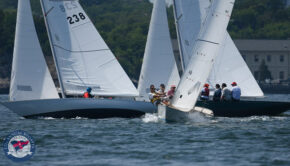Killing sport by early specialization
Published on August 1st, 2019
Sailing Performance Training, which seeks to provide elite fitness programs designed specifically for sailor-athletes, shares the belief that sport must be enjoyed to be embraced. In this report by SPT’s Fred Strammer, he shines the light on why the massive amount of beginner sailors we see each summer don’t embrace the sport beyond their teen years.
I bet you’ve reminisced about your youth sailing days: visiting venues for the first time, the lessons learned, and the sailors that were consistently on the podium.
Not too long ago, I thought the 15 year old winning Orange Bowl or the 13 year old that qualified for the Opti National Team would be our next Volvo, America’s Cup, or Olympic Medalist. But then I started thinking: where are those legendary sailors from my youth?
Interestingly, many of them peaked in their late teens, entering their quick decline in the college years and, ultimately, leaving the sport almost all together. Why did these sailors with such promising trajectories in their youth, not pursue higher levels of competition in sailing?
Keeping sailors engaged in the pipeline of our sport has been a long standing topic of concern but one that is not unique to our sport. In fact, the United States Olympic Committee is concerned about sport development and participation in the United States.
All sports are seeing a decline in participation and early specialization is one of the most significant factors.
First, let’s start with the definition of sport specialization: intense training in one sport while excluding others. Early sport specialization includes this intense training in one sport at an adolescent age.
There is no doubt, that athletes must practice their sport to become proficient, however, the intensity and singularity to which young athletes focus their training can have short and long term negative effects.
Advantages of Early Sport Specialization:
• Immediate performance improvements
Disadvantages of Early Sport Specialization:
• Burnout in late teen years.
• Psychological fatigue from intense travel and competition.
• Cost to overall athletic development.
• Increase of injury due to systemic, repeated stress to same muscles and tendons used in one sport and a lack of development of other.
• Decrease in long term sport success.
• Not cost-effective.
Click here for Fred’s complete report, but what must be pointed out is how sailing is different from other sports due to the diversity in equipment. While there is still significant benefit in experiencing a variety of activities, the issue with sailing is how many youth sailors do not experience the sport beyond the limitations of age-based boats and competitions.
By experiencing a variety of boat types, and removing the shackles of age restrictions, the likelihood skyrockets that a young sailor will learn from each experience and find what it is in sailing they can embrace. Without that opportunity, the odds increase that they will proceed to learn more and more about less and less until they don’t care anymore and quit altogether.








 We’ll keep your information safe.
We’ll keep your information safe.